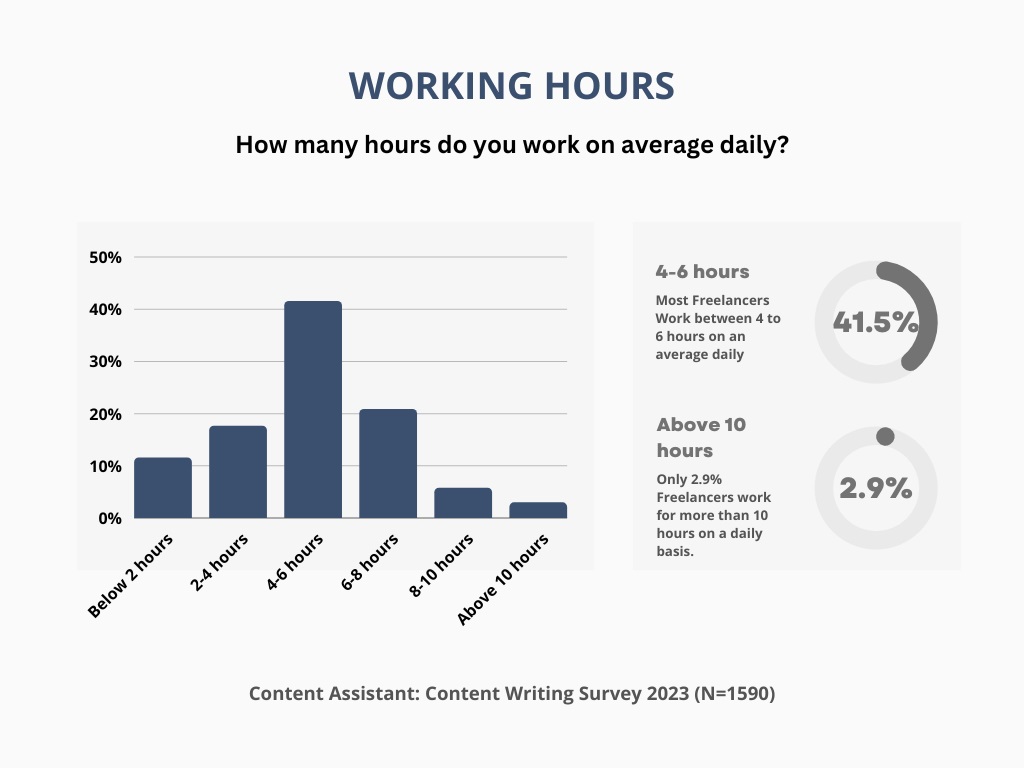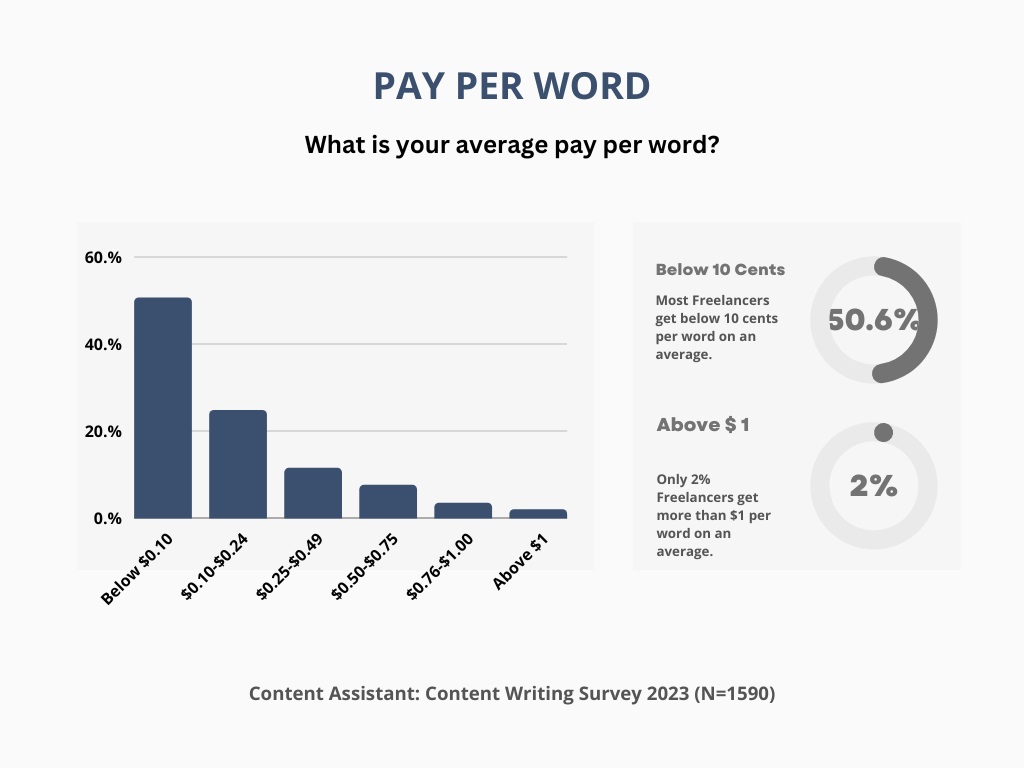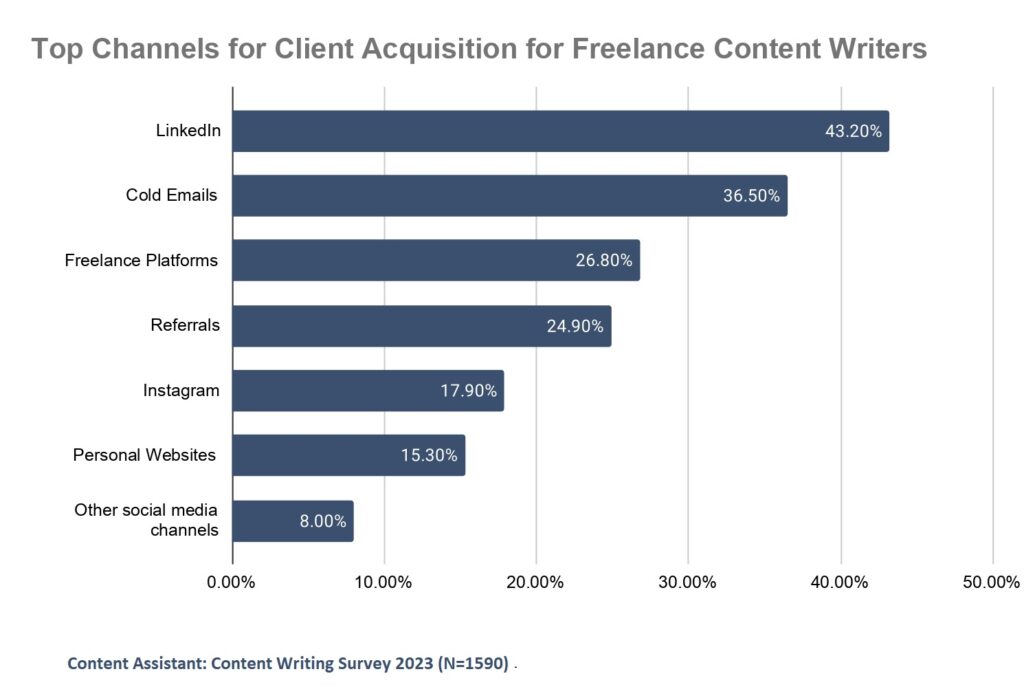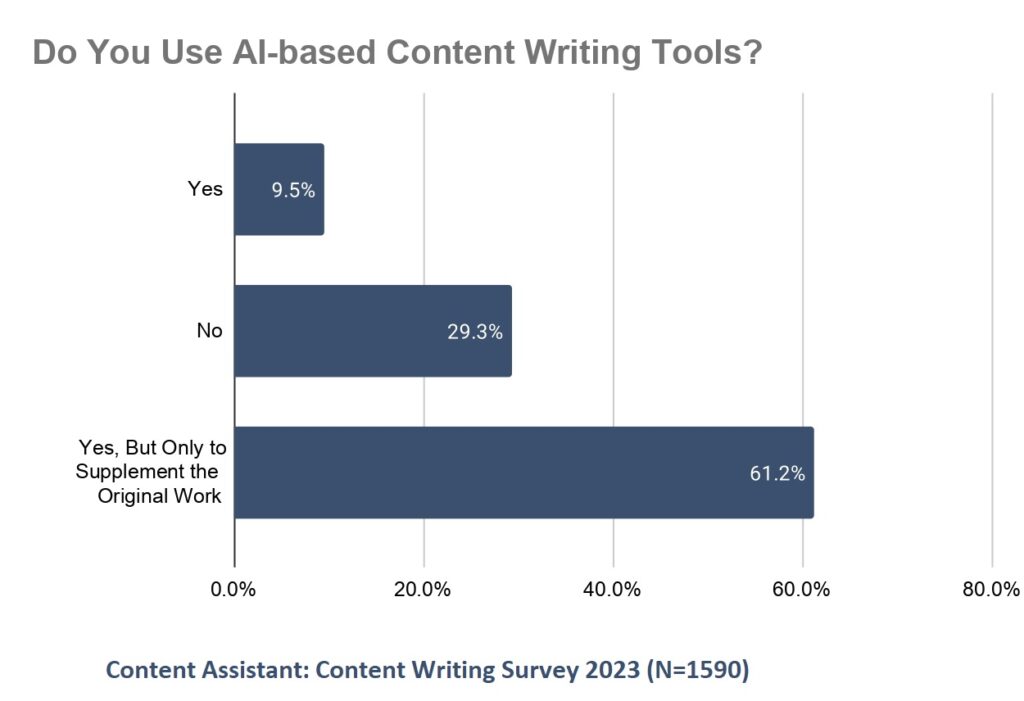Introduction
The freelance content writing industry has seen a surge in recent years, with many individuals seeking out this type of work as a way to make a living. In fact, the number of freelance content writers has grown exponentially over the past decade, with a steady increase in the demand for this type of work.
The reasons for this increase in demand are varied, with many companies recognizing the value of having high-quality content on their websites, social media pages, advertorials, and other digital outlets. The freelance content writing industry is also growing due to the fact that the cost of hiring and retaining a full-time content writer, content editor, content strategist, or content manager is often too high for many companies. By outsourcing content writing, companies try to save money while still getting the quality content they require.
Freelance content writing has also become a popular option for those looking to make a transition from a traditional job to a more flexible lifestyle. Overall, the freelance content writing industry is booming, with more and more companies recognizing the value of the services freelance content writers can provide.
The research article-The State of Freelance Content Writing: Survey Report 2023 is an attempt to gauge the working dynamics of freelance content writers, challenges faced by freelance writers, highest paying industry niches, and top channels for client acquisitions used by freelance content writers. The research will benefit freelancers in understanding the current market situation and also help content seekers in understanding the key elements related to the freelance content writing world.
Survey and Data Analysis:
Content Assistant conducted a global survey to understand the current state of freelance content writers. 1590 freelance content writers took part and submitted their responses digitally. The surveyed freelance content writers were queried about their work hours, their average pay per word and pay per hour, clients, niches, challenges, and tools that they use. The survey revealed interesting insights about their work dynamics and other aspects related to freelance content writing.
Let us analyze the key survey results:
Average Working Hours

41.5% of freelance content writers work for 4-6 hours daily on an average
The most appealing aspect of freelancing has been the freedom it provides to accomplish work when and how it best suits the individual.
According to the survey, 41.5% of freelance content writers reported limiting their daily work hours to between 4 and 6 hours, and 20.8% reported working between 6 and 8 hours.
The reasons are apparent. Recent decades have seen a blurring or eliminating of the boundaries between work and home; missing important days of families and loved ones and postponing holidays year after year became common.
However, it’s no secret that for many people, especially those who lost loved ones in the pandemic, Covid-19 was a real wake-up call. People have learned the worth of their loved ones and their health more than ever. Many individuals feel they can do better than acting as corporatists for a few dollars.
One out of five freelance content writers admitted that they enjoy working between two and four hours a day, while almost 12% said they barely put in more than two hours for work. Thanks to their freelancing profile, content writers spend more time on recreation and personal and professional development.
Most importantly, freelancers now enjoy a healthy work-life balance that was impossible with their full-time jobs.
However, some freelancers still work 8 to 10 hours a day (5.7%), but the number of those who work more than 10 hours is minuscule (2.9%).
Pay Per Word

50.6% of Content Writers get below $0.10 dollar per word
Freelancers often struggle when trying to set prices for their services. Although they can choose between three pricing models—pay per project, hourly basis, or pay per word—the latter is the most common for freelance content writers.
Our survey revealed that more than half of independent content writers earn less than $0.10 per word. Nearly 12% of workers earn between $0.25 and $0.49 per word, while 8% make less than $0.24.
Factors such as being a relative newcomer to the market, offering generalized services, or having little to no access to high-end customers all contribute to a lower pricing point. There currently needs to be a defined way to enter the market as a freelancer because the industry is still finding its footing within the highly structured, conventional corporate framework. It takes a few years for new freelancers to learn the ropes of the gig economy because of the unorganized nature of the business, limiting them from charging more.
However, with the advent of digitization, freelancers have easier access to mentors and gurus in their field who are willing to share their knowledge and assist them in rapidly advancing careers. According to the poll, over 7% of freelance content writers demand between $0.50 and $0.75, while almost 4% charge between $0.76 and $1.00. Nonetheless, their market power enables 2% of the freelancers to set prices higher than $1.
Pay Per Hour

49% of content writers reported charging $10-$24 per hour based on the complexity of the project
Most freelance content writers base their fees on a per-word basis but knowing how much they charge per hour might provide an insight into their success or status.
We conducted a global survey of freelance writers and asked them to disclose their hourly rates.
Almost half of the freelance content writers (49%) confirmed that they earn between $10 and $24 per hour, while more than a quarter (27%) make $25 to $49 per hour.
Freelancing, as was previously said, needs a unified business structure. Consequently, independent contractors in the service industry often adjust their hourly rates to reflect current market conditions.
The polls showed that one in five content writers earns less than $10 per hour. The most common causes of such low hourly rates include inexperience, naiveté regarding market pricing, and falling into the trap of bulk employment offers.
Moreover, individuals tend to agree to low prices to win over customers. Even with this, many people worry that this would hurt them in the long run since their customers won’t be willing to pay the increased pricing.
Experienced professionals who have established themselves on LinkedIn, Upwork, and other similar sites can command higher pay rates. One of the reasons is the loyal customer base they have built up over the years. Our survey showed that six percent of content writers make between $50 and $75 per hour, while another 3.5 percent make between $76 and $100. The top 1.5% of global freelance writers earn $100 or more monthly.
Insights Related to Work Dynamics, Clientele, Work-Life Balance and Top Paying Sectors and Niches,
Female Content Writers Face Harassment Issues
53.4% of freelance female content writers have faced issues such as indecent remarks and sexually explicit comments from male clients
Those who have been keeping up with the increasing number of public complaints of workplace harassment in recent years may not be surprised to learn that more than half of female content writers had to deal with unwanted statements from male clients.
It is difficult to report harassment and sexism when working remotely as a freelancer for many reasons it is difficult for employees in traditional offices. However, due to their lack of a formal organizational framework, freelancers and small business owners often do not benefit from the same legal protections that their corporate counterparts have (for example, an HR department, redressal forums, or management groups to supervise and enforce workplace behavior).
Freelance experts agree that a professional and personal support system is essential in times like these. Additionally, with the proliferation of the gig economy, governments must enact legislation to protect freelancers.
Clients From Multiple Countries
31.6% of freelance content writers have clients from more than one country
The survey found that one-third of freelance content writers work with customers in more than one country. Freelance content writers’ ability to take their work anywhere in the world is enabled by the proliferation of borderless enterprises, cutting-edge cloud-computing technology, and pragmatic economic considerations.
For example, it can be difficult for business owners in the middle income and below in developed nations like the United States and the United Kingdom to afford to hire native authors. Due to English’s prominence as a global language, these clients can recruit writers from developing nations in Asia at substantially lower rates.
Meanwhile, freelancers benefit from an abundance of financial and job options when they offer their skills to clients abroad. Thanks to websites like Upwork and Fiverr, they can broaden their professional horizons and raise their profile among potential clients on a global scale.
Highest Paying Sectors
Pharma, IT, and Manufacturing industries pay the highest to freelancers, while the lowest reported payers are from the academic and digital marketing sectors.
According to the poll results, freelancers who provide their services to significant industries like manufacturing, information technology, and pharmaceuticals saw the highest pay rates. However, academic and digital marketing remuneration is substantially low compared to other sectors.
Like every other business, demand-supply dynamics affect the freelance economy. The data showed that writers from manufacturing, IT, and pharma get substantially higher pay, which is attributed to the high-paced development and radical shifts in these sectors.
Mentioning of IT sector is one of the most dominating industries worldwide. The multifaceted emergence of AI, blockchain, Big Data, and the like as core and peripheral business functions calls for professionals to contribute on many fronts. In addition, COVID-19 amplified the emergence of e-commerce and the digital switch of businesses at a large scale. All these factors led to the high demand for writers with exceptional technical knowledge and advanced writing skills.
Further, the demand for technical writers has grown in tandem with the development of the engineering and healthcare industries.
The increasing trends of e-medicine, biotech developments, and the unprecedented progress of the pharmaceutical industry have created an abundance of opportunities for content writers. These industries require highly qualified writers who develop technical writing, such as clinical trial protocols, and educate their audience on their products and services. Due to the shortage of individuals with strong technical and writing skills, those who do exist charge extravagant fees for their services.
Work Consistency
Only 22% of freelancers reported having clients that provide predictable and consistent work.
One of the most significant obstacles for freelancers is maintaining a steady stream of work. It can be somewhat hit-or-miss, especially in the beginning, for those who are just starting.
According to the survey results, about one-fifth of freelance content writers have reliable, consistent work. The situation poses a significant obstacle for those who have chosen to forego traditional employment in favor of freelancing and still need help to get a regular job. They have expenses that must be met, of course.
However, many newcomers ask what these freelancers are doing differently to guarantee ongoing assignments and, hence, regular revenue.
One of the ways freelancers stand out from the crowd is by identifying and creating their value. (HBR) When freelancers niche down their services, it helps them monetize their skills and offers them uniquely crafted products and services.
Furthermore, the authors emphasized that fostering loyalty should be a priority. It enables them to generate recurring business that may be transformed into a goldmine that guarantees stability and referrals.
Top Reasons to Say No to Projects
Complicated work type, low pay, and refusal to pay advance are the top three reasons for saying no to projects
Content writers cited the project’s complexity, lesser remuneration, and refusal to give advances as the top three reasons for rejecting the assignments.
Since many people still need to understand how a freelancer works, they want them to be able to do everything. Unfortunately, they must be made aware that this is not viable. The final product or service quality could be compromised if freelancers were hired to work on projects that needed to be more difficult or required skills that the freelancers needed.
Many freelancers examine a project’s compatibility with their skills and level of experience in the sector before deciding whether to accept it. It is also prudent because making unachievable promises will eventually ruin the endeavor and damage one’s brand image. Successful freelancers encourage beginners to be intellectually honest and forthright.
Low pay is the next factor. Although excellent compensation is the most desired benefit in the freelancing economy, it is unwise to take on low-paying work. For individuals who are knowledgeable and aware of their value, it is obvious to reject projects that exceed the budget. Moreover, lower compensation for high-quality work frequently backfires for seasoned freelance writers seeking substantial professional advancement.
Finally, freelancers often decline their projects when clients refuse to pay advances. Because most freelancers operate alone, there is a high rate of clients not paying them or disappearing without a trace once the assignment is finished. Many freelance writers have reported feeling bound to request payments in advance from clients to protect themselves against dishonesty.
Freelancers and their Work-Life Balance Situation
I am able to manage my work and personal life:

64.7% of Freelancers Reported a Healthy Work-Life Balance
While freelancing has the potential to give writers more freedom and flexibility, it can also put a lot of pressure on both their time and mental health. Working from home, content writers may have difficulty finding time to exercise, sleep, or socialize. This can lead to stress and burnout. A work-life balance, including getting enough sleep, taking regular breaks, and having healthy meals with friends or family, is critical for a sustainable freelancing journey.
To avoid burnout while working as a freelancer, prioritize self-care by scheduling regular breaks and making sure to take regular vacations with loved ones. Try to build a strong social network to bounce ideas off of others and get support when you need it most.
Lastly, be honest with yourself about how much work you can realistically handle at any given time. It might be time for a change if you find yourself burning out even though your workload is manageable.
As a freelance content writer, your career will depend on your ability to balance your work and personal life. It’s important to be able to set aside time for yourself so you can take care of yourself physically, mentally, and emotionally. Making time for relaxation, date nights, and vacations are also vital. As you build your freelance business and earn more money, it will be important to set aside more money in your budget for these things.
While balancing work and life is difficult for some, it can be achieved with the right mindset. Be sure you’re taking advantage of all opportunities that are available to you so that you are always growing as an individual and professional. Your work-life balance will be much better when you clearly see what you want from both sides of the equation.
Top Challenges Faced in Freelance Content Writing
While working as a freelance content writer can be extremely rewarding, it also comes with its own set of challenges. From finding clients to staying motivated, there are plenty of obstacles standing between you and your dream career as a full-time freelancer. To make the road ahead easier for aspiring freelance writers, we’ve outlined some of the biggest challenges that come with this career choice and shared strategies on how to overcome them.

#1 Insufficient Earnings
59.6% of freelance content writers reported insufficient earnings as the biggest challenge
Freelancers often struggle when it comes to earning enough money from their work. To increase your income, consider raising your rates and setting clear payment terms with the client beforehand. You could also look into higher-paying freelancing platforms or other ways to monetize content writing, such as writing ebooks, blog posts, etc., to supplement your income.
#2 Extreme Price Negotiations
52.5% of freelancers reported extreme price negotiations as their biggest challenge
Content writers often face pressure from clients who want them to lower their rates to save money on projects. Freelancers must ensure that they charge enough for their services and do not allow these types of clients to take advantage of them. If you believe a client is not honoring your price, politely decline the opportunity and look for more suitable projects.
#3 Low Work/Lack of Work
48.5% of freelancers reported extreme price negotiations as their biggest challenge
This is perhaps one of the most common challenges faced by freelancers – when there isn’t enough work coming in or when the type of work is inconsistent. A key solution here would be diversifying your services and targeting as many potential clients as possible. This can be done through marketing yourself and developing a strong online presence, so you have more opportunities to find the right projects for you.
#4 Time Management
41.5% of freelancers reported extreme price negotiations as their biggest challenge
Good time management is essential for content writers because it helps them stay on track with deadlines and find a balance between work and life. To manage their time effectively, freelancers can create a daily schedule for themselves, set clear deadlines for each project, and break down complex tasks into smaller chunks that are easier to complete. It’s also important to make time for yourself every day so you don’t burn out.
#5 Clients Not Paying On Time Or Not Paying At All
40.2% of freelancers reported extreme price negotiations as their biggest challenge
This is, unfortunately, one of the biggest challenges faced by content writers, especially when dealing with new clients. The best way to avoid this issue is to request an advance payment before beginning the project and to ensure that they have signed a contract that outlines the payment terms clearly. You should also research your client thoroughly beforehand, to ensure they are reliable.
#6 Odd-hour Meetings/Calls
39.4.% of freelancers reported extreme price negotiations as their biggest challenge
For many freelancers, the ability to work remotely can be both a blessing and a curse because they may be required to attend odd-hour calls or meet with clients at inconvenient times due to time zone differences. To avoid this issue, communicate clearly with your client beforehand about the hours you will be available for calls/meetings and ask them to respect that timeline.
#7 Meeting Unrealistic Deadlines
36.8% of freelancers reported extreme price negotiations as their biggest challenge
Many clients put pressure on freelancers by setting tight deadlines that are hard to meet without compromising quality. To tackle this problem, be honest with your clients and explain to them that it is not possible to meet unrealistic deadlines. If the client refuses to be reasonable, it is best to decline the project altogether.
#8 Work/Life Balance
33.9% of freelancers reported extreme price negotiations as their biggest challenge
Working long hours without taking breaks is another common challenge freelance content writers face, as they may feel pressure to squeeze more work into every day while making sure they finish projects on time. To avoid overworking yourself, set realistic deadlines and make sure you take regular breaks throughout the day. You can plan out your day focusing on one task at a time and prioritizing important tasks first. This will help you stay motivated and productive without compromising your well-being.
#8 Dealing With Rejection
31.6% of freelancers reported extreme price negotiations as their biggest challenge
Rejection is an inevitable part of any freelance career, as clients often have different tastes or preferences when it comes to content writing. To cope with rejection in a healthy way, freelancers should focus on honing their skills rather than taking rejections personally. It’s also important to remember that every rejection is an opportunity to learn and grow, so take advantage of it by identifying areas for improvement. Besides, don’t be afraid to contact potential clients and solicit feedback on why the content fell short of their expectations. This valuable feedback can help you improve as a writer and increase your chances of future success.
#9 Inability To Stay Organized
22.5% of freelancers reported extreme price negotiations as their biggest challenge
Content writers need to stay organized in order to manage all of their projects effectively. To do this, you can use a project management system or an app such as Trello or Asana to keep track of tasks, deadlines, and progress on each project. You can also create a workflow process for yourself to know exactly how much time each task takes and when it needs to be completed. This will help you become more efficient and productive in your freelance work.
#10 Fraudsters Posing As Clients
21.4% of freelancers reported extreme price negotiations as their biggest challenge
Unfortunately, this is another challenge that content writers often face – scammers who pretend to be genuine clients but have no intention of paying once the project has been completed. To avoid this problem, avoid anyone who asks you to work without signing a contract or who pays unusually high rates upfront. Before beginning any project with a potential client, it is best to conduct some research on them.
#11 Toxic Clients
12.1% of freelancers reported extreme price negotiations as their biggest challenge
Dealing with clients who have unreasonable demands, provide unclear instructions, and are generally unpleasant to work with can be a huge challenge for freelancers. The best way to handle this situation is to set boundaries at the start of your working relationship by providing detailed contracts that clearly outline what you expect from them in terms of payment and side conditions. If it does not change the client’s behavior, it’s time to move on and find a better fit for yourself.
#12 Maintaining Motivation
6.4% of freelancers reported extreme price negotiations as their biggest challenge
Just like any other job, content writing can become repetitive and monotonous over time. To keep themselves motivated, freelancers should challenge themselves to learn new skills or work on different types of projects. You should also set aside some time each day to read industry news and articles to stay up-to-date with the latest trends in content writing. Finally, don’t be afraid to take risks and embrace creative opportunities as they arise – it’s often these experiences that lead to the most exciting results!
Top Channels for Client Acquisition for Freelance Content Writers

43.2% of freelance writers reported getting clients from Linkedin
There are few platforms that are as effective for freelancers as LinkedIn. LinkedIn is a professional social media platform that offers a direct and customized process for searching for potential clients. Many freelancers find that a combination of posting on their newsfeeds and joining a few relevant groups can go a long way toward getting clients.
#Cold Emails
36.5% of freelance writers bagged work via cold emails
Another tactic that freelance content writers use to find clients is sending cold emails to potential clients. Cold emails can be a quick and effective way to get in touch with ideal clients. Cold emails that are clear, direct, and professional convert quickly.
#Freelance Platforms
26.8% of freelance writers receive work from freelance platforms
Freelance websites like Freelancer, Upwork, Fiverr, and Problogger also get new clients for freelance content writers. Most of these freelance websites have advanced search functions, allowing freelancers to browse potential clients by industry, job type, price range, etc.
#Referrals from Clients, Friends, Colleagues
24.9% stated that they get clients from referrals
Word-of-mouth referrals are the most effective way to build a client rotation as a freelance content writer. Developing strong relationships with current clients, colleagues, and industry professionals can help freelance content writers in getting referral clients.
#Instagram and Facebook
17.9% of freelance writers acquire clients from Instagram
While Instagram is primarily a social media site for sharing moments and images with your friends and family, it can also be a great way to find new freelance clients. Content writers have been leveraging Instagram and getting clients from it. Branding business accounts, using feed as a portfolio, networking with hashtags, reaching the audience at the right time, writing direct messages (DMs) to potential clients, and using comment marketing are some methods freelancers use to bag content writing clients.
#Personal Portfolio Website
15.3% of freelance writers get directly contacted via their personal websites
A personal website that showcases a portfolio of work and writing expertise to potential clients can get valuable clients for freelancers. 15.3% of surveyed content writers have their own portfolio websites. 42.6% of them have business hosting while others mentioned using free portfolio website services to create their portfolio website.
Do You Use AI-based Content Writing Tools?
70.7% of freelance content writers asserted that they use AI-based content writing tools. However, of them, 61.2% pointed out that it is used as a supporting application that helps them in creating content at scale. Freelance content writers are not completely reliant on these tools and use them only to supplement their writing or add more content to their original work.

We also queried freelancers to mention the AI content writing tools that they use. Jasper AI, Writesonic, Copy.AI, and ChatGPT (recent addition) emerged to be the most mentioned AI writing tools.
Only 18.4% of the Surveyed Freelance Content Writers Feel that AI Tools Can Replace Them
Most surveyees believe AI writing tools have been known to be extremely helpful to freelance content writers, but they do not have the capability to completely replace them. AI tools can provide writing assistance and make the writing process easier and faster. However, they cannot completely replace freelance content writers as these tools are not capable of providing the same level of creativity and depth of understanding that a human can. AI tools can also be used to generate content, but the quality of the content is not comparable to that of a human writer. Therefore, it is highly unlikely that AI writing tools will be able to completely replace freelance content writers anytime soon.
The Future of Freelance Content Writing
Freelancing trends are witnessing an upward trajectory. With the rise of the Gig economy and in the aftermath of the pandemic, many have shifted from in-house jobs to freelancers. It is projected that in 2027, 86.5 million people will be freelancing in the United States alone (it will constitute 50.9% percent of the total U.S. workforce).
Niche freelance content writers are in high demand.
As companies are always looking for highly specialized and knowledgeable writers to create content that resonates with their target audience in a particular industry. Competent content marketing firms, content writing agencies, and freelance content writers specialize in developing and executing content Marketing initiatives. These entities are often delegated duties to produce content. Freelancer content writers create high-quality content that is optimized for SEO. Freelance content writers and content writing agencies provide a variety of different perspectives and insights for creating content marketing campaigns.
As freelancing becomes a norm, its acceptance and popularity will grow further. The same applies to the freelance content writing field. The future of freelance content writing seems bright.
Conclusion
Tired of feeling frustrated and stagnating in the clutches of full-time jobs, tens of thousands of professionals have chosen to freelance as their ultimate career path. Content writing can be a rewarding and lucrative career, but it’s not without its challenges. Finding new and innovative ways to grow your freelancing business is essential, especially if you have your sights set on freelancing.
This research sought to provide valuable insights into the realm of the freelance content writing world to benefit companies seeking such services and professionals providing these services. For example, by learning about the top channels for client acquisition for freelance content writers, you can begin to branch out and get in touch with potential clients who may have otherwise been out of your reach. Knowing the average pay structure, you can try to earn above average by creating a strong brand for yourself.
For more details and insights please contact us at info@contentassistant.in.
Download the PDF Version of this Research: Click Download!




